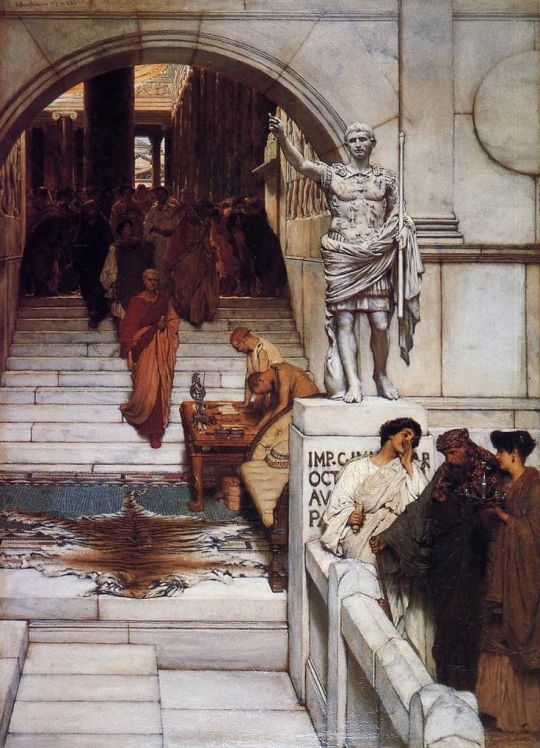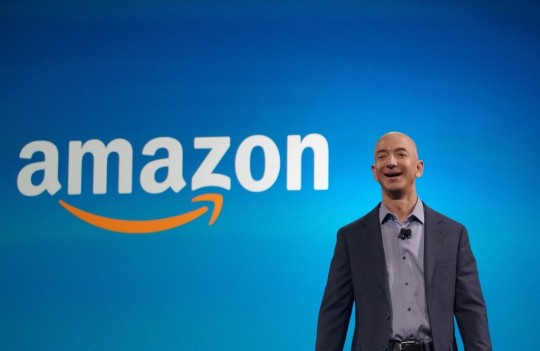‘What we wish, we readily believe and what we ourselves think, we imagine others think also’ – Julius Caesar
Along the coast of Swansea Bay lies a major Silicon Valley settlement. The Amazon depot is a kilometer long. On the busiest day of the year, around the beginning of December, trucks arrive every three minutes to pick up packages. The depot in Swansea is one of the ten Amazon barrack’s guarding the trade routes of Britain providing next day delivery on everything from Alexa to Beetroot to everywhere from John O’Groats to Lands End.
In June 2017 Jeff Bezos, the founder of Amazon, became for a brief moment became the richest man in the world with an estimated worth of $89 billion pounds. Bezos’s imperial outposts include Amazon storehouses around the world, the running of the Washington Post and the launch of the space travel company called Blue Origin.
Where Caesar had slaves, armies and chariots, Bezos has AI robots, drones and Spaceships.

Background
Jeff Bezos was born on January 12th, 1964. Like Steve Jobs, he grew up without his biological parents. In 1986 Bezos graduated from Princeton with a degree in Computer Science. He then moved to Wall Street where he was wildly successful. At 26 years old he became the youngest vice president at Bankers Trust, at 28 he then became the youngest vice president of DE Shaw and Co. Having seen internet companies expand at rates of 2300%, something unheard of in Wall Street, Bezos decided to leave New York in order to start his own internet business from a garage in Seattle.
Having drawn up a list of 20 different products that could be sold on the internet, Bezos decided that he would sell books online. Bezos played with various different names such as ‘cadabra’ and ‘makeitso.com’ before settling with the world renowned ‘Amazon’. Bezos’s gamble paid off. By 1999, just five years after Amazon had been created, Bezos had made $10 billion dollars and was named the Time Man of the Year. Today Amazon dominates the book market selling over 40% of all books and 65% of all e-books. In turn, Amazon also controls the e-commerce market with 55% of all shoppers claiming Amazon is there first port of call for any shopping.
By 2000, having already conquered earth, Bezos set his sights on space establishing the space travel company Blue Origin. In an interview in 2016, Bezos asserted his desire to colonize space taking his Empire places no Emperor has ever been before.
In 2013 Bezos bought the Washington Post. Bezos immediately applied his internet expertise towards journalism applying A/B testing to strategize what articles were gaining popularity online. In response, the Washington Post began to publish 1200 articles a day, a strategy that was hugely successful as in 2015 the post became even more popular than the New York Times. In the words of one former managing director of the Washington Post, the arrival of Bezos was the equivalent of having ‘Michael Jordan play for your team’.
In June 2017 the internet emperor Jeff Bezos became the richest man in the world at the age of 53.

Philosophy
How does a man become the richest person in the world? What philosophy or faith does one invest in to become one of the most powerful animals on earth?
When asked if Bezos had forecast his success he replied saying ‘god no’, however, following the success of Amazon and the acquisition of companies like the Washington Post it is undeniable that Bezos has total belief in himself.
Boer argues that Bezos assumes himself to be revolutionary leading the ‘revolution in the means of production’. Bezos’s faith in the application of technology whether it be towards selling newspapers or books has provided great benefits for him. In turn, Bezos is said to ‘regard devoted institutionalism as lazy, timid and self-destructive’.
Most explicitly this disregard for institutionalism has been demonstrated by Bezos’s attitude towards traditional publishing companies. Not only has Bezos outmuscled bookselling companies through Amazon, but he has also challenged publishing industries through his publication of e-books. Amazon has provided a new means of production for selling books. People can now become successful writers through publishing directly onto Amazon. The magnitude of this change was demonstrated in 2014 when the Telegraph reported that one-third of all e-books sold on Amazon were self-published. Therefore, Bezos’s empire is helping overthrow traditional institutions in commerce, journalism and publishing.
The first commandment of Bezos’s Amazon Empire remains that the ‘customer comes first’. Bezos distils the sustained success of his company to two different philosophies. Firstly, he boasts of Amazon having a ‘customer obsession’ rather than a ‘competition obsession’. This means that Amazon is continually attempted to improve the customer’s experience, leading Bezos to continually reinvest profits back into Amazon.
Secondly, he is continually looking to strengthen three aspects of Amazon: to establish low prices, provide fast delivery and offer a vast selection of products. Bezos’s skill in boiling Amazon’s business plan to three basic principles help the cohesion of his workforce, as all 95,000 of his employees can understand and act towards improving Bezos’s business strategy.
According to the Financial Times in 2017 Bezos also plays a leading philanthropic role amongst tech companies. Despite Bezos’s preoccupation for planning for the future, he believes in regards to charity philanthropy is all about ‘helping in the here and now’, giving around $100 million dollars in the past, and asking Twitter for philanthropic recommendations.
Bezos is driving a commercial revolution. Armed with a fleet of spaceships, millions of books and Amazon barracks around the world Bezos has built one of the humanity’s strongest and most comprehensive business Empire. He is a Cecil Rhodes for the 21st century, dominating almost every industry that he goes into. Bezos can predict the future because he has the power to build the future. Pay close attention to the Emperor’s orders.
